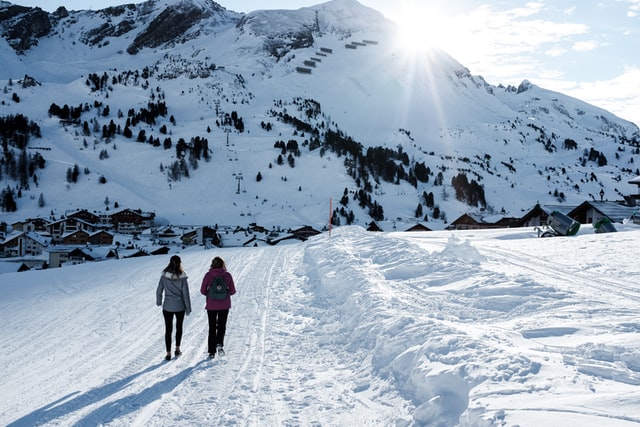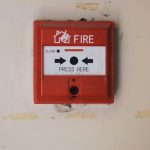During winter is a banally beautiful season, but it also carries certain dangers inherent to health. Some of them are quite serious indeed! Winter brings with it some common health problems and you must learn to combat them.
Have you ever spent the Christmas season in New York? A little bit, it’s a bit surreal that feeling in the environment when you’re there and everything seems perfect. You know life itself is incredible at that moment: most of the people are super happy and with such a good vibe that you are the best friend of all; the decoration in the windows of the department stores and the boutiques of the 5th. The avenues seem like a dream, while the decoration, the lighting and the sounds of the city and yet nature itself with its snow, the fallen leaves of the trees that mark the end of autumn and others, suggest that these dates are the better in every aspect of the year, right? And even if you are not there, it seems that this is the case even at home, but is this true?
It is only a part because the winter season it, on the other hand, also represents a season that carries health risks and when this is missing or affected, there will be no decoration or Christmas carol that makes up this other reality. So read what we are talking about.

Contents
What are the challenges that you have to overcome in terms of health problems this winter?
Some of the ones you will see below may be very subtle and others will be red lights that you should be very aware of:
Colds, flu, and even COVID-19.
Influenza and rhinoviruses are lovers of low temperatures and therefore, they stalk us more at this time. They replicate more as temperatures drop and, therefore, are transmitted more easily, so avoid close, crowded spaces, being in contact with people who do not protect themselves or who are repeatedly ill and who, therefore, can infect you from something. (Although they say whiskey can help you with this)
Carbon dioxide poisoning.
You may have already heard on the news of poisonings and even deaths due to it, whether from ovens, fireplaces, stoves, or heaters. Being an odorless and colorless gas it is dangerous and some of the symptoms to detect it are dizziness, nausea, and shortness of breath. That is why it is super important that you check the correct operation of the heaters and, if possible, get a monitor of this gas for indoors.
Dry skin and itching sensation in it.
The skin undergoes adaptations during hot or cold seasons and in the course of it can be affected. In winter, it dries out more than normal (and there are home remedies to avoid it) so, try to use creams instead of body lotions, protect your face from the cold by placing gels or creams to prevent cold burns, prefer moisturizers, and avoid bathing with very hot water.
Weight gain.
The cold weather also promotes food intake to generate heat in your body, especially of foods high in fat or not so healthy. So in this regard, do not suspend your aerobic or resistance exercise, establish your goal of personal weight or maintenance of it and seek help from programs or experts that guide and motivate you not to gain weight.
Hypothermia or frostbite.
And beware; this is not something just about the climbers who climb the mountain, eh! Think that a baby, an elderly adult, or a chronically ill person is susceptible to this. So the lower the temperature, the greater the risk in this population. The cooling end of the skin can be detected by hardening, numbness, and blanching, since the water of the soft tissues of the fingers and toes, nose and face begin to freeze. Keep the extremities warm and cover the hands, ears, and face especially when leaving.
Winter injuries and accidents.
Falls due to the slippery water-snow or in the places that snow, or if you are one of those who go to Ruidoso, Aspen, or beyond you should take care of this. Remember to warm up before starting any winter activity to protect your muscles, do not overdo it by doing it intensely, and prepare from your non-slip footwear to thermal and insulating clothing for humidity and cold.
Joint pain.
Many arthritis crises are triggered in cold, humid climates. So try to dress in layers and when you go out consider wearing a scarf, gloves, thick socks, and even a cap or hat. Also, stay physically active as this keeps your joints healthy and take vitamin D supplements if possible.
Asthma and winter allergies.
Winter weather can trigger asthma attacks and allergies and even be indoors can exacerbate them. Remember that there are allergens such as dust, humidity, among others that can contribute to these. Therefore, avoid low temperatures and use type surface covers on beds to minimize exposure to mites, dust, etc. Also, add probiotics to strengthen your digestive health and your immune system.
Heart attacks.
The infarcts increase this season because even a drop of two degrees in ambient temperature can cause narrowing of blood vessels and therefore obstruct the blood supply to tissues such as the heart. Obviously, as you age, it is more difficult for your body to regulate its temperature. So if it is possible for you to go out to sunbathe warmly at times, monitor your blood pressure, and even at the end of the year, you can schedule your medical check-up and blood tests to guarantee that everything is within normal parameters, values such as cholesterol per example.
Depression and Suicide.
Yes, we leave this one as number one because it is evident that with the whole situation and the closure of the pandemic, the lack of sunlight, the low vitamin D, the cold weather, the social isolation, and the physical and mental stress, to mention some factors can trigger anxiety and depression problems from there to more serious situations such as suicide. Many people, in the winter, can have a Seasonal Affective Disorder (SAD) that manifests itself at the same time each year. Some warning signs that you should be very aware of maybe that you cannot get out of bed during this time, that you have recurring episodes of sadness, tiredness, or fatigue all the time, that you are irritable, have feelings of hopelessness, gain weight, you are losing interest in social activities and especially that you seek to isolate yourself. If you are experiencing some of this, please seek help from a professional, and he will tell you if therapeutic or medical treatment is necessary.







